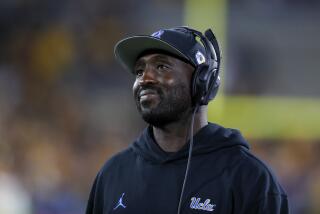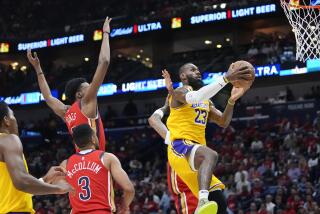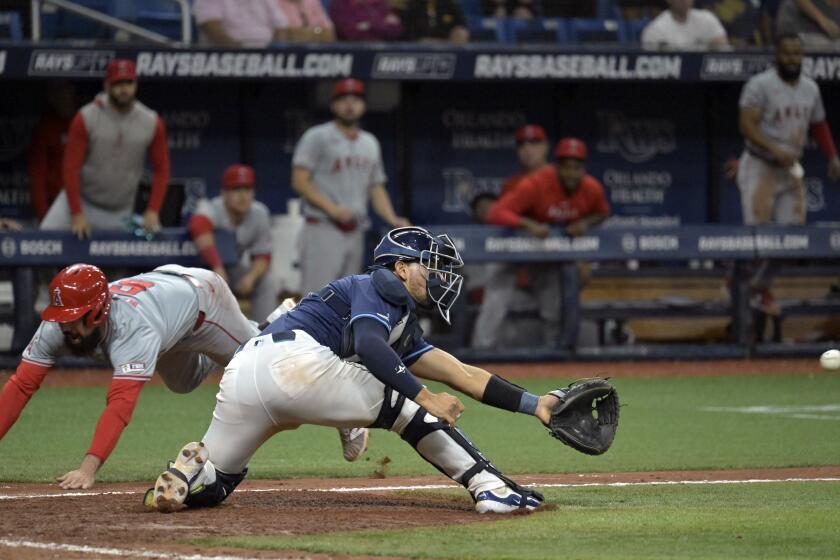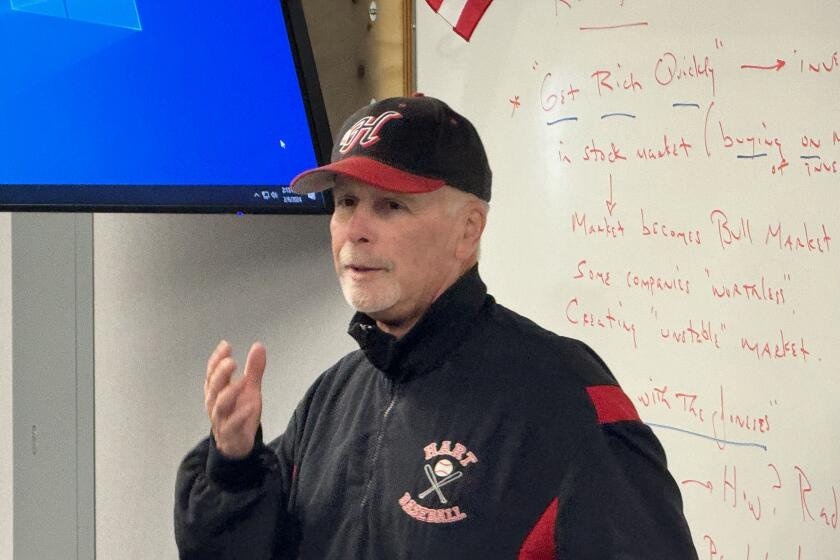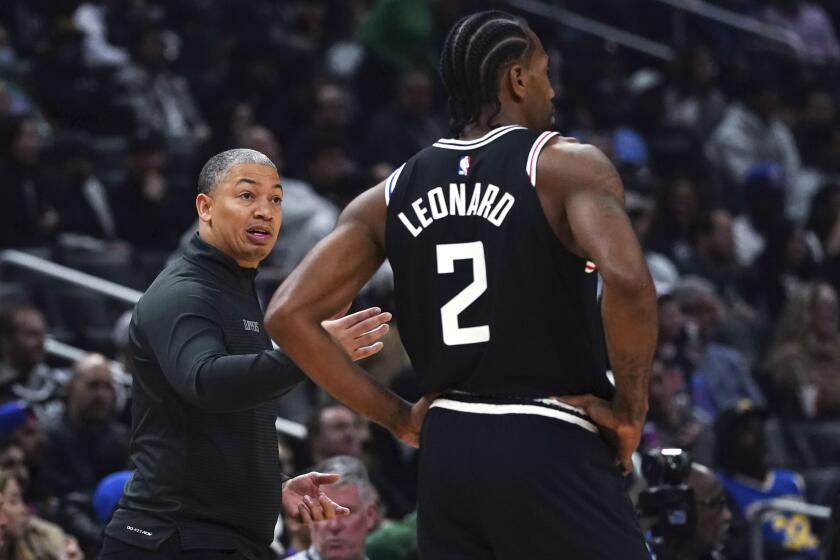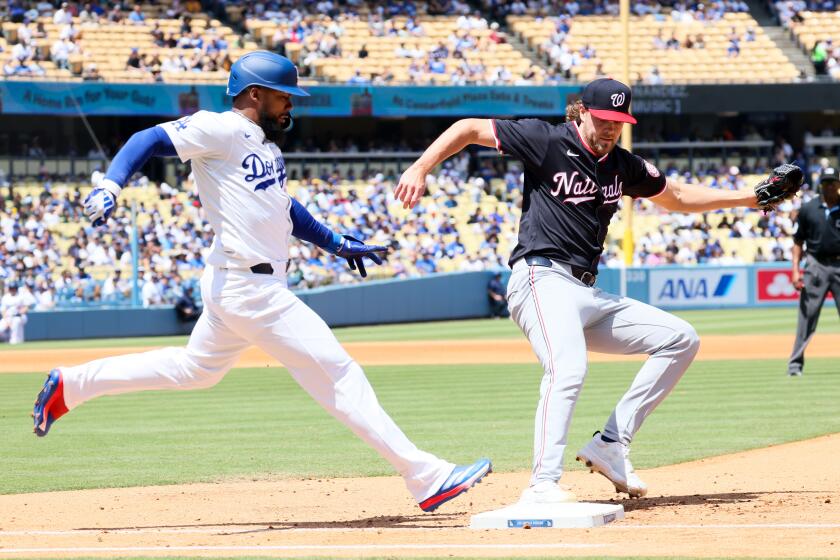The Man Who Didn’t Bite Quarterbacks
“Look at it this way, I never bit nobody.”
Looked at that way, it is possible to see why the football player, Don Paul, objected to being voted the dirtiest player in the National Football League in 1955.
Paul was so honored by his peers, guys he had never bitten. They were motivated, he believes, by admiration, envy, jealousy and a certain amount of good old-fashioned hate.
“Look at it another way,” the quarterback, Bobby Layne, once said. “Don Paul never did anything on a football field Hitler wouldn’t have done.”
Middle linebacker was a comparatively new position for football in those gloried days, and players had to invent ways to play it.
Paul was highly resourceful and thought up so many new ways that they thought up a new rule for him, called roughing the passer.
It was ruled that you couldn’t do anything to a passer, like rearranging his physiognomy, pulling his hair out by the roots, twisting his arm till he could open wine bottles with it or otherwise interfering with his having the same rights as anyone on the streets.
They tried to teach Paul that quarterbacks were people, too, with the same rights as anyone else, and that they did not waive those rights once they called for the football.
Paul, for his part, considered quarterbacks not exactly sub-human but certainly detrimental to the environment. He thought there should be a bounty on them, like on coyotes or alligator eggs. He boasts that he became the league’s leading linebacker. “I led in 15-yard penalties,” he says.
He also led in tackles--and in nosebleeds, limp-offs and positively-refused-to-plays. Blitzing linebackers were not new, but Paul’s rush put such a new refinement on it that the term red dog was used to describe the ferocity of the attack.
“Detroit used to have this massive middle guard, Les Bingaman,” Paul recalled. “No one knew how much Les weighed. More than some countries. But he protected so much of the middle just by being there that the coaches invented the middle linebacker to fill that vacuum.”
Paul was the first but was later to be succeeded by such as Joe Schmidt, Ray Nitschke, Bill George, Dick Butkus and Jack Lambert. It became a super-skilled position.
“It took us out of the five-man line and it took the long, long pass out of the arsenal,” Paul said. “Of course, now they have the three-man lines, but we were the first to make defense a science.”
The Rams of the day were a hell-for-leather group who played football almost for fun. “I got $6,000 a year most of the time,” Paul said. “I think I worked all the way up to $10,000. Of course, that didn’t make me a limousine liberal.”
The Rams got to the NFL championship game, forerunner of the Super Bowl, three years in a row after Paul, of UCLA, had been drafted. The Philadelphia Eagles beat them in a downpour in 1949; the Cleveland Browns beat them, 30-28, on a field goal by Lou Groza with 12 seconds to play in 1950, and the Rams beat the Browns in L.A. the next year, 24-17.
“Half the time we didn’t know who the coach was,” Paul said. “We took off in two planes for Hawaii once. In the front plane was Bob Snyder, the head coach. By the time he got airborne, a guy in the second plane, Clark Shaughnessy, was named coach. I played under five head coaches in seven years.”
The best player he ever played with?
“I couldn’t name one,” Paul said. “Bob Waterfield was one. He could do anything he had to on a football field. Pass, run, kick, play defense, think. And Tank Younger should be in the Hall of Fame for either offense or defense. He and Waterfield were a team all by themselves.
“Dick (Night Train) Lane was a genius on defense. It was like he had a recording in his head telling him where the ball was going to go. We’d hand out the defensive assignments, I’d call the defenses but we’d tell Train, ‘Just go where you want to, Train.’ ”
But the enduring mystery to Don Paul is how the 1946 Bruins didn’t become the most famous team since the Four Horsemen.
“We won 10 straight games, we rolled up 327 points. We beat Oregon State, 50-7, and that was the only game they lost that year. We beat Nebraska, 18-0, and we beat USC in a game so muddy we punted on first down all afternoon.
“You know who we had on that team? There was Burr Baldwin and Tom Fears at ends, there was me and Leon McLaughlin at center, Harry Thompson at tackle, and we had Jerry Shipkey and Moose Myers at fullback, Ernie Case at quarterback and Cal Rossi and Al Hoisch at half.
“And we got beat in the Rose Bowl by Illinois, 45-14! We didn’t think Illinois belonged on the field with us. We wanted Army. We wanted Doc Blanchard and Glenn Davis. I’ve never been able to sort that one out in my mind.”
Time has softened the disappointment, if not the mystery.
Don Paul was one of eight inductees into the UCLA Athletic Hall of Fame last week, along with Baldwin, his old teammate, and Kermit Alexander, Keith Erickson, Mike Frankovich, Jimmy LuValle, Willie Naulls and Jerry Norman.
The years have been kind to the old pioneer linebacker and No. 1 villain of the NFL. He has finally made it to the limousine liberal class with a series of fast-food outlets in area shopping malls and a catering business. One day this week, we lunched in the popular sports restaurant, Tracton’s, of which he is landlord.
Does Don rue his Count Dracula reputation now, on the shady side of his life and times and a respectable millionaire?
Paul laughed the same laugh that used to outrage the league when he used it over fallen quarterbacks and tight ends.
“Naw,” he said, grinning. “Quarterbacks are like the rich little kids in the block. You have to teach them what life is all about. I was doing them a favor. I was making a man of them.”
Even if breaking a nose was the quickest way to do it.
More to Read
Get our high school sports newsletter
Prep Rally is devoted to the SoCal high school sports experience, bringing you scores, stories and a behind-the-scenes look at what makes prep sports so popular.
You may occasionally receive promotional content from the Los Angeles Times.
